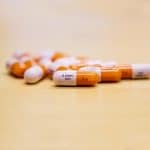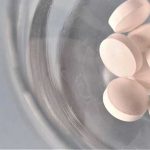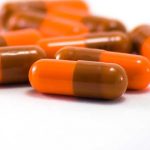Ritalin is a prescription stimulant medication used to treat attention-deficit hyperactivity disorder (ADHD) and narcolepsy. Ritalin, which comes as tablets, chewable tablets, and liquid, is used in both children and adults.
However, Ritalin and other ADHD medications, like Adderall (amphetamine/dextroamphetamine) are commonly abused for their euphoric and stimulant effects.
Stimulant abuse increases the risk of dependence and addiction, which may require professional treatment.
What Is Ritalin?
Ritalin, the brand name for methylphenidate, is a central nervous system stimulant that increases the neurotransmitter dopamine. High levels of dopamine can improve symptoms of ADHD, like inattention and difficulty focusing.
When Ritalin is misused, dopamine levels can be even higher, resulting in euphoric effects.
Side Effects
Ritalin may cause various side-effects, depending on the dose and frequency of use. Side-effects of Ritalin include:
- anxiety
- trouble sleeping
- decreased appetite
- weight loss
- irritability
- nausea
- vomiting
- headache
- dry mouth
- stomach pain
As a stimulant, Ritalin can also increase blood pressure, heart rate, and breathing. If you take too much or mix it with other stimulants, you may experience a drug overdose. A Ritalin overdose can cause serious health complications, including heart attack, seizure, and coma.
Ritalin Abuse
Ritalin abuse includes any type of drug use other than how it is prescribed. When Ritalin is abused, the effects can be severe and similar to cocaine and other illicit stimulants. Drug abuse increases the risk of overdose, addiction, and other health complications.
Substance abuse may include:
- taking someone else’s medication
- taking higher doses of Ritalin
- taking the medication more frequently
- crushing, snorting, or injecting Ritalin
- using Ritalin for its effects
Ritalin Dependence & Withdrawal
Frequent or heavy drug abuse can cause changes in the brain that make it difficult to stop using Ritalin. When your brain becomes dependent on stimulants, it is likely you will experience withdrawal symptoms when you stop taking it.
Symptoms of stimulant withdrawal include:
- fatigue
- depression
- anxiety
- difficulty sleeping
- intense cravings
- mood swings
- muscle aches
- trouble concentrating
Although stimulant withdrawal is not life-threatening, professional treatment can be beneficial, especially if you experience severe mental health symptoms.
In a detox program, you can recover in a safe and comfortable environment. Medical professionals monitor your symptoms around the clock and provide medication, if necessary.
Signs Of Ritalin Addiction
According to the Drug Enforcement Administration (DEA), Ritalin is a schedule II controlled substance with a high potential for dependence and addiction.
Addiction, also known as a substance use disorder (SUD), is characterized by intense cravings and an inability to control drug use.
Dependence and withdrawal symptoms are of the warning signs of addiction. However, there are several more tell-tale signs to help you determine if it’s time for you or a loved one to reach out for help.
Warning signs of stimulant addiction can include:
- isolating from friends and family
- using Ritalin, even when you don’t want to
- unable to control drug use
- loss of interest in other hobbies or activities
- drug use interferes with school, work, and relationships
- engaging in high-risk behaviors
- continued use, despite negative consequences
Ritalin Addiction Treatment
If you think you may be addicted to prescription drugs, like Ritalin, professional addiction treatment can help.
In an addiction treatment center, there are a variety of treatment options, including inpatient and outpatient treatment programs. A trained specialist can help you determine the level of care that fits your needs.
Based on your individualized treatment plan, you may have access to:
Inpatient Care
Inpatient treatment involves 24/7 supervision and a daily schedule of therapeutic activities. You may be involved with behavioral therapy, support groups, individual counseling, and wellness activities.
Outpatient Programs
Outpatient treatment offers a flexible alternative to inpatient rehab. During an intensive outpatient program (IOP) or partial hospitalization program (PHP), you will have access to a wide range of evidence-based treatment options.
Support Groups
12-step groups, like Narcotics Anonymous (NA) and Alcoholics Anonymous (AA), can connect you with peers who have similar goals and experiences. 12-step meetings can be found almost anywhere, either in-person or virtually.
Behavioral Therapy
There are currently no FDA-approved drugs to treat Ritalin addiction. However, behavioral therapy is one of the most effective methods to achieving and maintaining long-term recovery.
Behavioral therapy, which is offered at most treatment facilities, helps you learn healthy coping skills and how to identify unhealthy behaviors.
At Northeast Addictions Treatment Center, we provide a variety of outpatient treatment options for drug addiction. If you would like to learn more about our treatment options, please call our helpline today.
FAQs
Is Ritalin Classified As A Stimulant?
Ritalin, also known as methylphenidate, is classified as a stimulant drug and controlled substance in the United States. Prescription ADHD medications increase activity in the brain to improve symptoms of ADHD, including restlessness and impulsivity.
However, stimulants also have a high potential for abuse and dependence, which can lead to a substance use disorder (SUD).
Learn more about Ritalin As A Stimulant
Is Ritalin Classified As An Amphetamine?
No, Ritalin is not an amphetamine. Ritalin’s main ingredient, methylphenidate, has a different chemical structure than amphetamines. However, Ritalin has some similarities to amphetamines, including its effects on the body.
To learn more, read Is Ritalin An Amphetamine?
Is Ritalin Addictive?
When used therapeutically and under medical supervision, Ritalin is a safe and effective medication that can help manage symptoms of ADHD long-term.
However, if Ritalin is abused outside of medical need, the drug can be habit-forming and addictive, potentially causing severe short- or long-term mental and physical harm.
To learn more, read Is Ritalin (Methylphenidate) Addictive?
How Much Does Ritalin Cost?
When sold on the street, Ritalin usually costs between $1 and $50 per tablet. The exact price depends on the dosage and location.
When prescribed by a doctor, the drug typically costs between $30 and $200 per prescription, depending on the dosage, number of tablets prescribed, pharmacy, and your insurance.
Learn more about Ritalin Street Prices & Prescription Costs
Does Ritalin Expire?
Ritalin does expire. The expiration date is usually stamped on the bottle or the package your prescription comes in. Once that date has passed, it’s not recommended to use it.
To learn more, read Does Ritalin Expire?
Is It Safe To Take Ritalin While Pregnant?
Although there are no adequate human studies regarding pregnant women who have taken Ritalin (methylphenidate hydrochloride), women are advised to speak with their doctor about Ritalin use during pregnancy.
There have been animal studies that suggest this central nervous system (CNS) stimulant can pose potential problems for pregnant women, especially if the ADHD medication is taken in early pregnancy.
Learn more about Ritalin Use During Pregnancy
Can You Smoke Ritalin?
Ritalin is not suitable for smoking unless it is first freebased. Trying to smoke Ritalin may be a sign of a substance abuse disorder.
Learn more about Smoking Ritalin
What’s The Difference Between Ritalin & Concerta?
Ritalin and Concerta are both brand names for methylphenidate, but there are a few key differences.
While Ritalin is used to treat attention deficit disorder (ADHD) and narcolepsy, Concerta is only used to treat ADHD. Ritalin also comes in a variety of release tablets and capsules while Concerta is only available as an extended, long-acting release.
Learn more about the Differences Between Ritalin & Concerta
Is Dexedrine Stronger Than Ritalin?
Dexedrine tends to be more stimulating than Ritalin which is why it’s often used when Ritalin has been proved ineffective. Dexedrine also tends to last in the body longer than Ritalin so you feel the effects for a longer period of time.
Learn more about Ritalin Vs. Dexedrine
What’s The Difference Between Ritalin & Desoxyn?
Ritalin has a main ingredient of methylphenidate, while Desoxyn has a main ingredient of methamphetamine. Ritalin and Desoxyn may affect the CNS differently and have different effects when overdosed.
Learn more about Ritalin Vs. Desoxyn
Sources
Written by
Northeast Addition Editorial Team
©2024 Northeast Addition Center | All Rights Reserved
This page does not provide medical advice.




